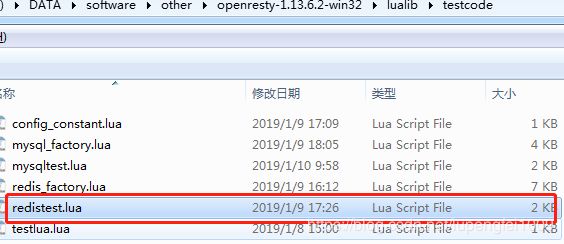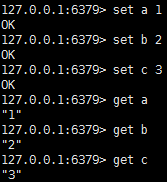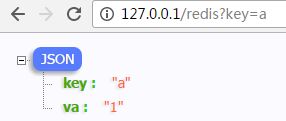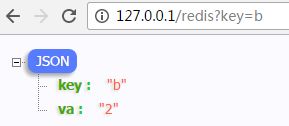OpenResty高并发最佳实践--Redis操作
文章目录
- 前言
- 准备
- 代码走起
- 测试
前言
使用到了OpenResty,很核心的目的是为了解决高并发的问题,为了不让数据库成为高并发的瓶颈,那么操作redis就变的不可避免了,下面介绍OpenResty操作redis的过程
准备
不了解OpenResty的可以参考以下文章
OpenResty(Nginx+Lua)高并发最佳实践
Window下基于ZeroBrane Studio开发调试OpenResty
代码走起
-
redis连接池(工具类)
在OpenResty的lualib目录下创建testcode文件夹,用于放置我们的测试lua脚本,并在文件夹下创建redis_factory.lua,如下图:

将以下代码拷贝至该文件(不需要做任何修改):local redis_factory = function(h) local h = h h.redis = require('resty.redis') h.cosocket_pool = {max_idel = 10000, size = 10000} h.commands = { "append", "auth", "bgrewriteaof", "bgsave", "bitcount", "bitop", "blpop", "brpop", "brpoplpush", "client", "config", "dbsize", "debug", "decr", "decrby", "del", "discard", "dump", "echo", "eval", "exec", "exists", "expire", "expireat", "flushall", "flushdb", "get", "getbit", "getrange", "getset", "hdel", "hexists", "hget", "hgetall", "hincrby", "hincrbyfloat", "hkeys", "hlen", "hmget", "hmset", "hscan", "hset", "hsetnx", "hvals", "incr", "incrby", "incrbyfloat", "info", "keys", "lastsave", "lindex", "linsert", "llen", "lpop", "lpush", "lpushx", "lrange", "lrem", "lset", "ltrim", "mget", "migrate", "monitor", "move", "mset", "msetnx", "multi", "object", "persist", "pexpire", "pexpireat", "ping", "psetex", "psubscribe", "pttl", "publish", "punsubscribe", "pubsub", "quit", "randomkey", "rename", "renamenx", "restore", "rpop", "rpoplpush", "rpush", "rpushx", "sadd", "save", "scan", "scard", "script", "sdiff", "sdiffstore", "select", "set", "setbit", "setex", "setnx", "setrange", "shutdown", "sinter", "sinterstore", "sismember", "slaveof", "slowlog", "smembers", "smove", "sort", "spop", "srandmember", "srem", "sscan", "strlen", "subscribe", "sunion", "sunionstore", "sync", "time", "ttl", "type", "unsubscribe", "unwatch", "watch", "zadd", "zcard", "zcount", "zincrby", "zinterstore", "zrange", "zrangebyscore", "zrank", "zrem", "zremrangebyrank", "zremrangebyscore", "zrevrange", "zrevrangebyscore", "zrevrank", "zscan", "zscore", "zunionstore", "evalsha", -- resty redis private command "set_keepalive", "init_pipeline", "commit_pipeline", "array_to_hash", "add_commands", "get_reused_times", } -- connect -- @param table connect_info, e.g { host="127.0.0.1", port=6379, pass="", timeout=1000, database=0} -- @return boolean result -- @return userdata redis_instance h.connect = function(connect_info) local redis_instance = h.redis:new() redis_instance:set_timeout(connect_info.timeout) if not redis_instance:connect(connect_info.host, connect_info.port) then return false, nil end if connect_info.pass ~= '' then redis_instance:auth(connect_info.pass) end redis_instance:select(connect_info.database) return true, redis_instance end -- spawn_client -- @param table h, include config info -- @param string name, redis config name -- @return table redis_client h.spawn_client = function(h, name) local self = {} self.name = "" self.redis_instance = nil self.connect = nil self.connect_info = { host = "", port = 0, pass = "", timeout = 0, database = 0 } -- construct self.construct = function(_, h, name) -- set info self.name = name self.connect = h.connect self.connect_info = h[name] -- gen redis proxy client for _, v in pairs(h.commands) do self[v] = function(self, ...) -- instance test and reconnect if (type(self.redis_instance) == 'userdata: NULL' or type(self.redis_instance) == 'nil') then local ok ok, self.redis_instance = self.connect(self.connect_info) if not ok then return false end end -- get data local vas = { ... } return self.redis_instance[v](self.redis_instance, ...) end end return true end -- do construct self:construct(h, name) return self end local self = {} self.pool = {} -- redis client name pool -- construct -- you can put your own construct code here. self.construct = function() return end -- spawn -- @param string name, redis database serial name -- @return boolean result -- @return userdata redis self.spawn = function(_, name) if self.pool[name] == nil then ngx.ctx[name] = h.spawn_client(h, name) self.pool[name] = true return true, ngx.ctx[name] else return true, ngx.ctx[name] end end -- destruct -- @return boolean allok, set_keepalive result self.destruct = function() local allok = true for name, _ in pairs(self.pool) do local ok, msg = ngx.ctx[name].redis_instance:set_keepalive( h.cosocket_pool.max_idel, h.cosocket_pool.size ) if not ok then allok = false end end return allok end -- do construct self.construct() return self end return redis_factory -
配置文件
同级目录下创建config_constant.lua,用于防止redis或者其他的公共配置文件

将以下代码拷贝至该文件,具体配置数据请根据自己的redis数据库的情况修改
config = {} config.redisConfig = { redis_a = { -- your connection name --ip host = '127.0.0.1', --端口 port = 6379, --密码 pass = '123456789', --超时时间,如果是测试环境debug的话,这个值可以给长一点;如果是正式环境,可以设置为200 timeout = 120000, --redis的库 database = 0, }, -- redis_b = { -- -- host = '127.0.0.1', -- -- port = 6379, -- -- pass = '', -- -- timeout = 200, -- -- database = 0, -- -- }, } return config
测试
-
编写测试脚本
前端传递需要查询的key,将key的值取出来并返回给前端
在testcode文件下创建redistest.lua并拷贝一下至该文件

--平台公共的配置文件常量 local config = require "testcode.config_constant" --redis连接池工厂 local redis_factory = require('testcode.redis_factory')(config.redisConfig) -- import config when construct --获取redis的连接实例 local ok, redis_a = redis_factory:spawn('redis_a') --用于接收前端数据的对象 local args=nil --获取前端的请求方式 并获取传递的参数 local request_method = ngx.var.request_method --判断是get请求还是post请求并分别拿出相应的数据 if"GET" == request_method then args = ngx.req.get_uri_args() elseif "POST" == request_method then ngx.req.read_body() args = ngx.req.get_post_args() --兼容请求使用post请求,但是传参以get方式传造成的无法获取到数据的bug if (args == nil or args.data == null) then args = ngx.req.get_uri_args() end end --获取前端传递的key local key = args.key --在redis中获取key对应的值 local va = redis_a:get(key) --响应前端 ngx.say('{"key":"'..key..'","va":"'..va..'"}') -
配置OpenResty下Nginx的Lua文件关联
在nginx.con中的80配置下添加如下配置location /redis { default_type text/html; #这里的lua文件的路径为绝对路径,请根据自己安装的实际路径填写 #记得斜杠是/这个,从window中拷贝出来的是\这样,这样是有问题的,务必注意 content_by_lua_file F:/DATA/software/other/openresty-1.13.6.2-win32/lualib/testcode/redistest.lua; }
到此,Lua操作redis完成!!!





